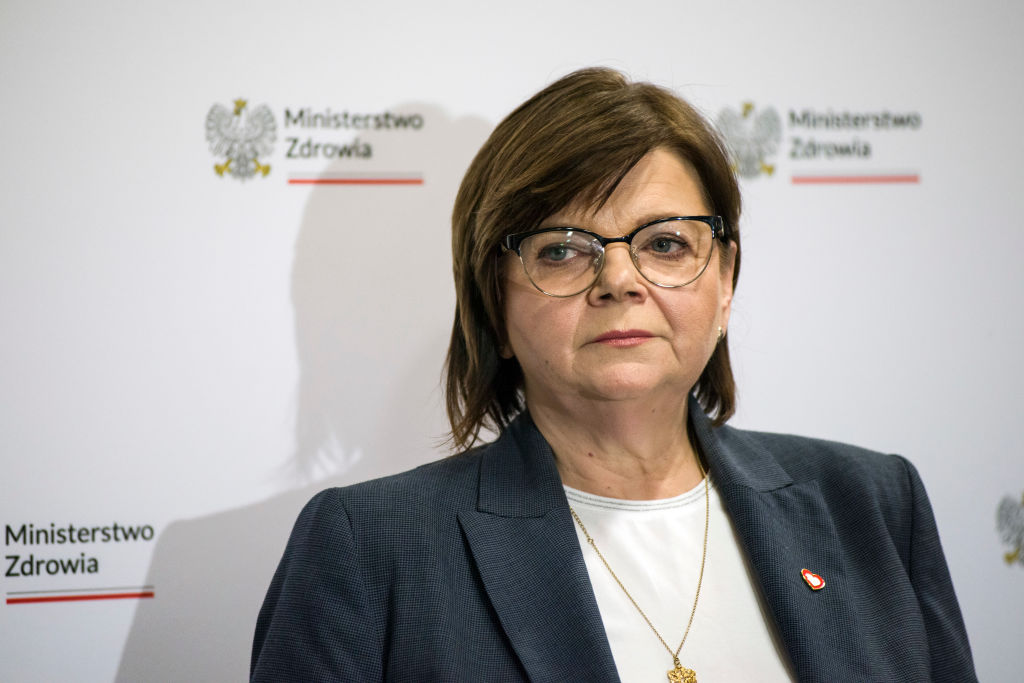Poland’s Health Minister, Izabela Leszczyna’s has praised a year of healthcare progress and a programme which featured significant milestones, from promoting women’s health to efforts of sustaining mental healthcare and establishing a critical medicines list,
The Minister noted the efforts to address healthcare accessibility, especially in harder-to-reach areas, and emphasised that ensuring medicine security remains a top priority.
“We will strive to engage the European Union in providing financial support for the production of medicines listed on the first National Critical Medicines List,” stated Minister Leszczyna.
Women’s health initiatives
The review began with an overview of a project aimed at improving access to emergency contraception. According to Leszczyna, “Despite all pharmacies being eligible to participate, only 12% chose to join the programme—amounting to 1,342 pharmacies across Poland.”
This means that emergency contraception is now available in over 70% of counties in the country. The Minister emphasised that considering such contraception was previously inaccessible without a prescription, this initiative has significantly improved the quality of life for Polish women in this area.
She also remarked on the success of the free IVF programme, describing it as “the pride of the entire government.” Thanks to this initiative, Poland has advanced from 42nd place in 2021 to 19th place in the European Atlas of Fertility Treatment Policies.
To date, over 6,750 women have become pregnant through the programme, and 20,000 couples dreaming of children have participated.
Additionally, she noted the removal of age restrictions for prenatal testing in 2024, which resulted in a 25% increase in pregnant women accessing such diagnostics.
Improvements in mental health care
The Minister acknowledged that psychiatric facilities require additional funding to provide patients in mental health crises with appropriate conditions. Currently, many institutions fail to ensure the necessary level of comfort and privacy expected by patients.
Minister Leszczyna detailed that the ministry has already allocated approximately €260 million towards developing a community-based care model, with a further €650 million set to be invested in psychiatric hospitals providing round-the-clock inpatient care.
She mentioned the reinstatement of the helpline for children and adolescents, stating, “A child or a parent of a child in a mental health crisis can seek help at any time.”
Additionally, in her speech, the Minister noted that the government has taken steps to reduce the risk of potential addictions by restricting access to opioids sold through so-called prescription vending machines and teleconsultations.
Improved access to doctors and prescriptions
Leszczyna highlighted the government’s efforts to address healthcare accessibility, particularly in smaller towns and rural areas. Recognising the challenges these communities face in accessing primary care, the government has allocated over €215 million to support investments in healthcare facilities.
“Our goal is to eliminate so-called ‘healthcare deserts’ in areas lacking adequate primary care services,” she explained.
Free medicines for older adults, children, and adolescents can now be prescribed by any GP or specialist under a contract with the National Health Fund (NFZ), as well as by private doctors. The Minister added, “With the amendment to the law, we have also enabled pharmacists to issue prescriptions for all vaccines reimbursed for adults.”
Moreover, the Ministry of Health removed limits on palliative and hospice care in April and increased reimbursement rates for these services starting in July.
Pharmaceutical security
Minister Leszczyna recalled that the project for the first National Critical Medicines List has been established, identifying essential medications that experts believe must be available in crises. “We will also strive to engage the European Union in providing financial support for the production of these medicines,” she emphasised.
Krzysztof Kopeć, President of the National Pharmaceutical Producers Association, told Euractiv that 2024 has indeed been a pivotal year for building the foundations of Poland’s pharmaceutical security.
“In 2024, statutory incentives to increase domestic drug production came into effect, and after years of discussions, the government prepared a list of critical medicines for the health and lives of Poles. It also announced plans to develop support mechanisms for their production,” he explained.
He acknowledged that today, no one doubts that uninterrupted access to medicines is essential for the functioning and defence of the state. Ensuring the supply of medicines is key to the country’s resilience in the face of a wide range of threats, from terrorist attacks and hybrid warfare to military aggression.
However, he pointed out that the government had forfeited over €130 million from the National Recovery Plan, originally intended to support the production of active pharmaceutical ingredients and critical medicines.
“It is therefore necessary to develop a new, comprehensive support mechanism. Especially since other EU countries are already actively supporting their pharmaceutical industries. Poland cannot afford to fall behind,” he concluded.
[Edited by Vasiliki Angouridi, Brian Maguire]
Source link : http://www.bing.com/news/apiclick.aspx?ref=FexRss&aid=&tid=676a7027fabb49bb981351925b59e66a&url=https%3A%2F%2Fwww.euractiv.com%2Fsection%2Fhealth-consumers%2Fnews%2Fpolands-health-minister-praises-a-year-of-intense-action-wins-for-pharmacy-womens-health%2F&c=6494881522652640567&mkt=en-us
Author :
Publish date : 2024-12-23 15:46:00
Copyright for syndicated content belongs to the linked Source.
